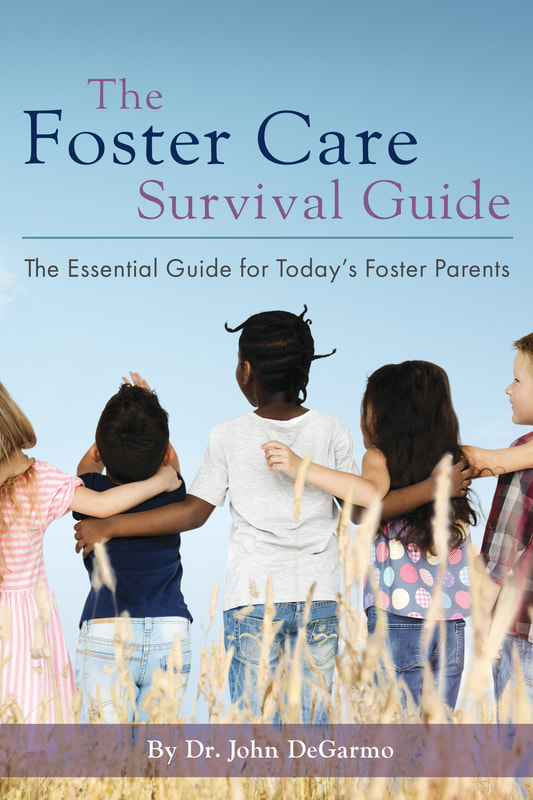
I have found that the more information I have about my foster children, the better prepared I am to help them. Indeed, knowledge is power, as we both know. Often times, the best place to find those answers and to seek that knowledge is from the parents and family members of the foster child living in your home. After all, it is likely that your foster child’s biological parents and family members will know him better than anyone, even the case worker. Last month, we looked at the realities of working with birth parents.
You might just have a opportunity to find out some of the answers you are seeking about your foster child, as well as discover more about him than from his family. Face to face meetings and phone conversations with the birth parents and biological family members can help both you and the child. Your meetings with them will offer you the opportunity to learn a great deal about the child from foster care in your home. His likes and dislikes, his hobbies and interests, his fears and concerns, what foods he enjoys, and much more.
Along with this, you can also acquire important information you might need. This information might include how he performs in school, struggles he faces in the classroom, allergies, medical history and concerns, and more. Along with this, when you ask questions about their child, you are showing the birth parents that you are interested in him and his well being. This will only help you and the child, as well as comfort and reassure the parents that you are on the side of their child; that you are looking out for his best interests. By indicating, with your questions, that his parents are the experts, you will begin to form an important relationship, one that will benefit all involved. Again, make sure you ask these questions with respect, kindness, and understanding. In no way do you want the upset or offend the birth parents, or show them any sign of disrespect towards them. This will only hurt the child in both the short term and long term.
So, you need to come prepared to a meeting with the birth parents. What better way to come prepared than to have a list of questions with you. I would encourage you to let the child’s case worker know beforehand that you would like to ask his birth parents or biological family members some questions. A list of questions prepared beforehand will help you gather the information you need. You might have these questions written down on paper in a folder or notebook. These questions might include:
-Is your child on any medication?
-Does he have allergies to anything in particular?
-Has he had the Chicken Pox?
-Are there any medical concerns?
-Does he have any learning disabilities of any kind?
-What range of grades does he usually earn?
-What are his favorite subjects in school?
-What subjects does he struggle with?
-Does he have a special teacher that he has formed a positive and encouraging relationship with?
Join the thousands who receive Dr. DeGarmo’s FREE foster care newsletter. Simply fill out the form below.
-If he is from outside the school system, what school did he go to? (This will help you to gather all current school information, and ensure that his new school receives it.)
-Does he have any behavior problems?
-Does he have any fears?
-Is he scared of anything?
-Can he swim?
-What are his favorite foods?
-What are his interests?
-What are his hobbies?
-If he is young, does he have a favorite toy?
-Does he have any particular religious practices?
-Does he have a regular routine at home?
To be sure, this is a long list, and I would not encourage you to ask these all at once, unless the family is happy to answer them, and showing interest. If need be, you might wish to split these questions up over several meetings, or sessions, so you do not overwhelm them.
Just like you, there are going to be questions from others. This time, the questions might be pointed towards you, about you, and centered around your family. Your foster child’s family will no doubt be very curious about you. Once again, that is normal, and that is healthy. After all, you are caring for a member of their family, their child. The biological family and birth parents want to know all about you; what you do, who you are, why you are a foster parent, if you are doing a good job, and perhaps most importantly, is the child safe and cared for in your home. If you think about it, you would most likely have these same questions if the roles were reversed, and your own child was living in another home and with another family.
If the birth parents of your foster child have not already asked questions about you and your family, take time to share with them some information about you and your family. Let them know that you are excited to have their child in your home for the time being. Show them that their child is healthy and happy, perhaps with some pictures of him. Indeed, give the parents pictures and school reports of the child for them to take home with them. Let there be no mistake; this will go a long way in helping to not only reassure them, but also to build a healthy working relationship between the two of you. Tell them about some of the traditions in your home. Reassure them that their child will not only be safe in your home, but cared for and given plenty of positive attention. Share with them some of the activities, successes, and positive moments that their child has had while in your home. The more assurance birth parents have that their child is in a good home, the better the relationship will be between the two of you.
To be sure, this is a long list, and I would not encourage you to ask these all at once, unless the family is happy to answer them, and showing interest. If need be, you might wish to split these questions up over several meetings, or sessions, so you do not overwhelm them.
Just like you, there are going to be questions from others. This time, the questions might be pointed towards you, about you, and centered around your family. Your foster child’s family will no doubt be very curious about you. Once again, that is normal, and that is healthy. After all, you are caring for a member of their family, their child. The biological family and birth parents want to know all about you; what you do, who you are, why you are a foster parent, if you are doing a good job, and perhaps most importantly, is the child safe and cared for in your home. If you think about it, you would most likely have these same questions if the roles were reversed, and your own child was living in another home and with another family.
If the birth parents of your foster child have not already asked questions about you and your family, take time to share with them some information about you and your family. Let them know that you are excited to have their child in your home for the time being. Show them that their child is healthy and happy, perhaps with some pictures of him. Indeed, give the parents pictures and school reports of the child for them to take home with them. Let there be no mistake; this will go a long way in helping to not only reassure them, but also to build a healthy working relationship between the two of you. Tell them about some of the traditions in your home. Reassure them that their child will not only be safe in your home, but cared for and given plenty of positive attention. Share with them some of the activities, successes, and positive moments that their child has had while in your home. The more assurance birth parents have that their child is in a good home, the better the relationship will be between the two of you.
(Excerpt from The Foster Care Survival Guide: The Essential Guide for Today's Foster Parents)
-Dr. John
Want MORE about this? Order your signed copy of the new book The Foster Care Survival Guide. Order your special copy HERE.




 RSS Feed
RSS Feed